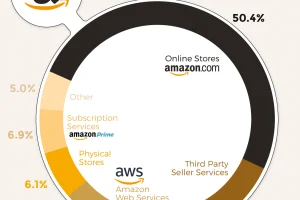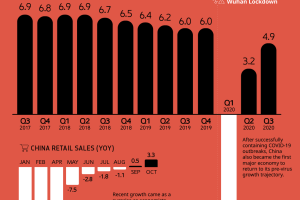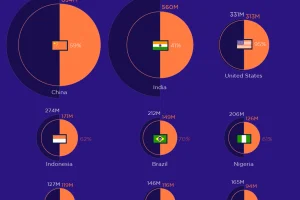The Briefing
- In the last 12 months, the performance of restaurant stocks on the NYSE ranges from 90% to -21%
- The average return for restaurant stocks has been 16.8%, underperforming the NYSE Composite’s 23.8% over the same time period.
- Executing on a digital ecosystem has been a big driver of value for the best performers on the list
Restaurant Stocks on the NYSE
Restaurants, arguably more than other industries, have had to adjust swiftly to a new and unrecognizable landscape during the pandemic. And the level of preparedness towards adverse and unpredictable conditions reflects in the last 12 month (LTM) stock price performance of the 18 restaurant stocks on the NYSE.
The performance for this basket of stocks ranges from a high of 90% to a low of -21%. The companies that have rewarded shareholders are at the forefront of industry trends, doubling down on a digital ecosystem through concepts like membership programs, ghost kitchens, delivery, and mobile sales.
Winners and Losers
The vast division of stock price performance has a David and Goliath component to it in that the larger companies with deeper pockets have had the ability to invest in modern initiatives.
The top five performing stocks have an average market cap of $14 billion, while the bottom five possess an average of $630 million.
| Stock | Last 12 Month Performance | Market Cap ($M) |
|---|---|---|
| Brinker International, Inc. | 90.85% | $3,120 |
| Shake Shack, Inc. | 88.63% | $4,970 |
| Chipotle Mexican Grill, Inc. | 70.19% | $40,580 |
| Yum China Holdings, Inc. | 37.53% | $25,090 |
| Luby’s, Inc. | 32.92% | $98 |
| Darden Restaurants, Inc. | 28.26% | $17,900 |
| Flanigan’s Enterprises, Inc. | 16.10% | $44 |
| Yum! Brands, Inc. | 6.18% | $31,060 |
| Biglari Holdings Inc. | 2.90% | $356 |
| Cannae Holdings, Inc. | -1.87% | $3,420 |
| McDonald’s Corporation | -1.88% | $153,690 |
| Restaurant Brands International, Inc. | -2.81% | $27,580 |
| Aramark | -4.82% | $9,650 |
| J. Alexander’s Holdings, Inc. | -6.12% | $131 |
| Dine Brands Global, Inc | -9.25% | $1,330 |
| Biglari holdings (Class A) | -10.20% | $363 |
| Drive Shack Inc. | -11.82% | $238 |
| Arcos Dorados Holdings Inc. | -21.23% | $1,100 |
Digital Haves and Have Nots
The same types of initiatives appear to be paying off, especially for the biggest winners.
- Brinker International has exceeded expectations with its ghost kitchen virtual offering—It’s Just Wings. A ghost kitchen is a restaurant optimized strictly for delivery, with a no dine-in approach and a condensed menu, they are intended to achieve higher margins.
- Shake Shack saw 60% of shack sales go digital in Q3’20. Their digital footprint is expected to grow along with their target to open 50-60 new locations in 2021.
- Chipotle’s loyalty rewards member program reached 17 million members as of late. Furthermore, digital sales grew 177% year-over-year in their fourth quarter, and nearly 50% of revenues are now derived from digital orders.
Dine-in Drought
Those in negative territory have not had the same good fortune. They tend to be sit-down establishments suffering from drastic falls in foot traffic.
Without a pre-existing digital presence to reach customers, sales run the risk of taking a nosedive. Hospitality workers are among those hardest hit by the pandemic, and a lack of demand for hospitality labor again points to the dire circumstances for some sit-down restaurants.
Delivery Mania
For the food industry, the fall in foot traffic is partially offset by the rise in food delivery. Pure play companies in the food delivery space like DoorDash and Grubhub have fared well. Grubhub reported 622,700 Daily Average Grubs (daily deliveries) in 2020, up from 492,300 from the year prior. And for Uber, growth in the delivery segment of their business has buoyed the decline in ride hailing.
With the vaccine rollouts in play, the restaurant stocks on the NYSE may get a much-needed boost. But pandemic or not, the digital trends in the restaurant space will continue to shape the industry after COVID-19 just as it has done prior.
Where does this data come from?
Source: Top Foreign Stocks
Notes: Data is as of March 1, 2021





